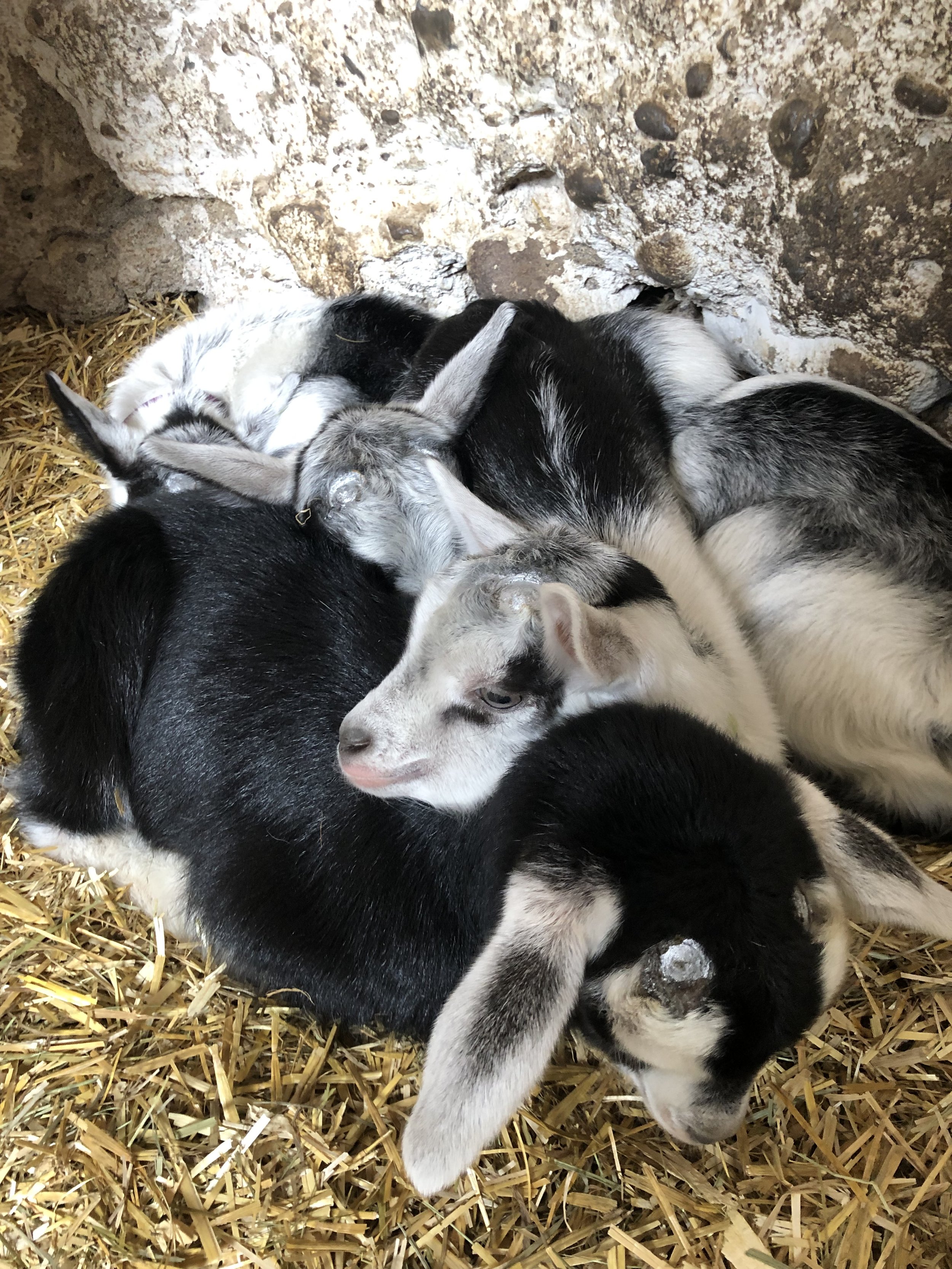
Animal Welfare & Care
The Bowers Farm Operating Procedures are evaluated annually to reflect the most current science and best management practices within veterinary and animal industries.
Committed to Excellence in Animal Care
We have a big role in developing an understanding of agriculture, which is a task that isn’t taken lightly. This includes the importance of animal welfare in our food system and how animal agriculture connects to our daily lives.
Globally, 54% of people live in a city, a number that continues to rise. For many students, a field trip to Bowers School Farm is the only exposure to agriculture they may experience. The Farm provides a unique and safe environment where learners can ask questions and engage in dialogue surrounding modern food production with practitioners, experts and educators.
In modern times, 54% of people globally live in a city¹. That means a field trip once or twice to the Bowers School Farm as a student is the only exposure to farming one may experience. While there is a massive shift away from rural life, we are committed to providing an environment where questions promote dialogue and a commitment to expanding our understanding.
Farming has been glorified as a respite from the modern-day hustle in an era of technological reliance. While getting back to your roots may be admirable, caring for livestock requires farm management skills. Our team of animal care experts work diligently to assure the health and well-being are of utmost priority. This includes:
Implementation of best practices in animal husbandry and caring for animal welfare
Ongoing learning to stay ahead of the latest production challenges and methods
Maintaining infrastructure including fences, water supplies, machinery repair, shelter upkeep etc.
As you come to visit the farm, you will notice a working Farm with production practices ensuring the animal’s welfare, which is in the best interest of the farmer. When the animals are well cared for, the farmer’s investment is maintained.
Animal welfare standards are based on sound, scientific findings. Optimal animal health and wellbeing should always be the basis of animal welfare. “Five Freedoms” for the care of animals are recognized internationally as the foundation for welfare management:
Freedom from hunger, malnutrition, and thirst
Freedom from fear and distress
Freedom from physical and thermal discomfort
Freedom from pain, injury, and disease
Freedom to express normal patterns of behavior
We raise the animals in accordance with the Bowers Farm Standard Operating Procedure. Reviewed annually by our attending veterinarian, the standards meet or exceed animal welfare guidelines outlined in the Guide for the Care and Use of Agricultural Animals in Research and Teaching, 3rd. ed.
Our commitment to keeping animals healthy and to support a rich learning environment is unwavering. For our environment, students, guests, and generations of learners to come.
The attending veterinarian at Bowers Farm in Dr. Hillary Lobar, DVM. You can get to know her through our questions below:
-
I graduated from North Carolina State University in 2013. After working in both private practice and academia, I started my own practice in 2016 after my family moved to Michigan.
-
I wanted a job with animals ever since I was a little kid, but I also realized I wanted a job where I could use my brain and keep learning throughout my life. As veterinarians, we are always learning. As different ailments affect species in unique ways and new research provides effective treatments, it’s important to be knowledgeable and a “lifelong learner”.
-
I have my Doctor of Veterinary Medicine as well as a Bachelor of Science in Animal Science.
-
I love my clients. Helping people help their animals is so rewarding. I also find internal medicine cases very interesting, especially gastrointestinal and metabolic diseases, as well as geriatric medicine. Of course, lambing/kidding season for my small ruminant patients is also a highlight!
-
Horses are my first love—especially quarter horses, thoroughbreds, and standardbreds, but goats are such lovely creatures. There is nothing cuter than a Nigerian dwarf goat!
-
I am so excited to see hobby farms popping up everywhere and renewed interest in producing food in sustainable ways. Animal agriculture gets such a bad name. When the public begins to engage with farmers and animals, though, there is so much room for learning and understanding. On a personal side, I want to be the best mom I can be. I also hope to own an off-the-track thoroughbred horse someday and show it in eventing!
